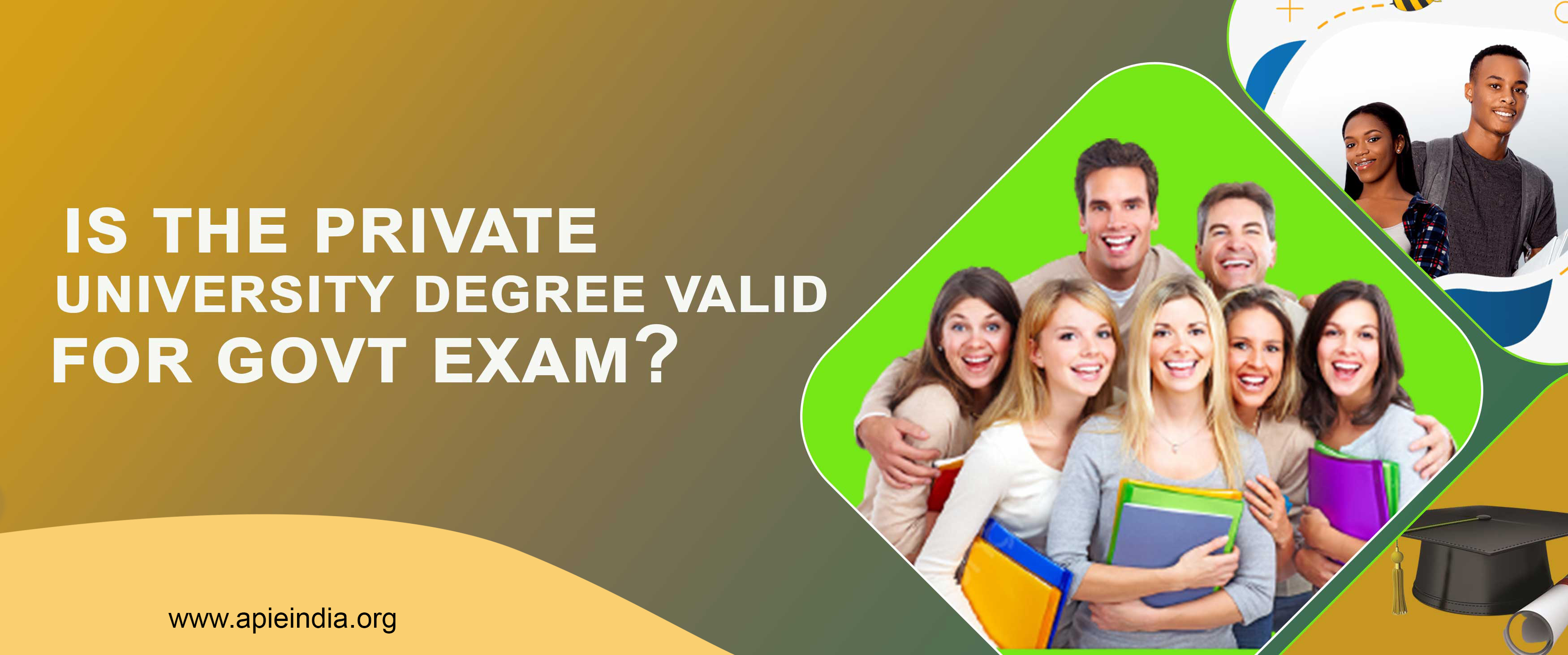Is Private University Degree valid for Govt Exam ?

Is A Private University Degree Valid for A Government Exam ?
YES! When applying for government exams, degrees earned through private universities or open and distance learning (ODL) are fully valid.
The only requirement for government positions is that you have graduated from a UGC-DEB-approved university. Thus, your educational background is irrelevant; what matters are your intelligence and skills. If your private university is UGC-DEB-approved, your degree will be accepted for government exams.
If you are looking for a position in the central government, you should be aware that you will be required to take and pass an entrance examination. Aspirants must, however, meet certain qualifications. Only those who meet the criteria are permitted to take the entrance examination.
These eligibility criteria usually specify the greatest qualifications that candidates must possess. For example, the eligibility condition could be that the aspirant has a bachelor's degree or equivalent.
Government hiring processes evaluate candidates primarily on the basis of entrance exams, therefore they accept applicants with the necessary degree regardless of their field of learning. Private university degrees are therefore completely acceptable for the eligibility requirements; all you need to do to get the job is ace the written test and the interview (if there is one).
Popular Government Exams in India after graduation
- UPSC civil services examination
The Union Public Service Commission (UPSC) administers the civil services examination every year to choose suitable candidates for a number of civil service positions. This exam is open to Indian citizens with a bachelor's degree in any discipline from an approved university. Candidates who pass the UPSC test are employed in the Indian Administrative Services (IAS), Indian Foreign Service (IFS), and Indian Police Service (IPS). Source
- SSC CGL examination
The Combined Graduate Level (CGL) test is administered by the Staff Selection Commission (SSC) to choose gazetted officers for an assortment of administrative positions in government agencies, businesses, and ministries. The SSC CGL exam is open to Indian citizens, individuals of Indian heritage, and Nepalese and Bhutanese citizens aged 18 to 32 with a bachelor's degree from an accredited university. Age relaxation is allowed for candidates from the reserved categories. Source
- Central teacher eligibility test (CTET)
The CTET is administered by the Central Board of Secondary Education (CBSE) to hire certified teachers for both public and private schools in India. All Indian citizens who are at least 18 years old can take the exam. There are two exams included in it: CTET paper 1 for primary teachers (classes 1–5) and CTET paper 2 for elementary teachers (classes 6–8). It is a must to pass both exams in order to teach classes 1 through 8. Source
- RRB NTPC examination
You can apply for the Railway Recruitment Board's Non-Technical Popular Categories (RRB NTPC) recruitment exam after graduating. It may enable you to operate in a non-technical role with the Indian Railways, which is part of the Indian government's central government. The competitive test is open to Indian, Nepalese, and Bhutanese citizens aged 18 to 33, with age relaxation for reserved category candidates. The exam consists of two computer-based tests, each lasting 90 minutes and covering general awareness, mathematics, general intelligence, and reasoning. Source
- Judicial service exam
The judicial service tests are held by the State Public Service Commission or the high courts in India to choose law graduates and admitted solicitors with at least three years of experience, aged 21 to 35, for the lower judiciary services. An interview, a main examination, and a preliminary examination constitute the three stages of the judicial service exam. Source
2 Comments
Jordan Singer
2d2 replies
Santiago Roberts
4d